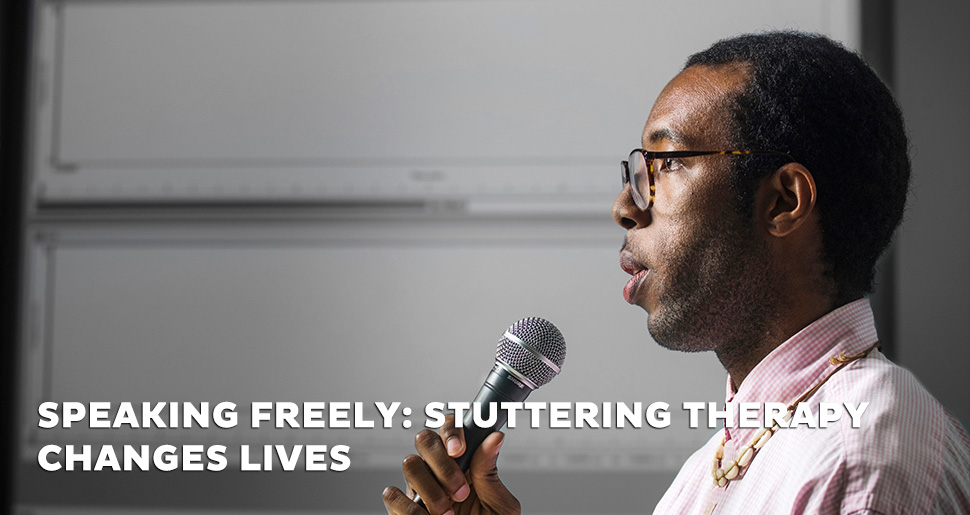Ordering food at a restaurant, talking on the telephone, introducing yourself to a stranger, or giving a presentation … for many people, these are considered routine acts of communication. For people who stutter, however, these tasks can feel insurmountable. Imagine the following scenario: the message you intend to say is fully formed in your brain. As the moment to speak approaches, your anxiety grows.
From past experience, you know that your mouth, tongue, and larynx do not always cooperate with your mind when it is time to express yourself. Your message may or may not come out fluently. You are a person who stutters, and the anticipation, pressure, and stress of communicating are sometimes so intense that you decide speaking is not worth the effort at all. Stuttering can be a battle. It can cause children and adults to change words and to stay silent when they want to participate. It can contribute to isolation, embarrassment, and shame.
The good news is that stuttering doesn’t have to do any of that. Stuttering does not need to limit your occupation, your education, or your social life. If you or someone you love is a person who stutters, the UNC Greensboro Speech and Hearing Center has licensed speech-language pathologists with specific training in stuttering therapy who are here to help. While most preschool children who stutter will recover before adulthood, early intervention is key.
At UNC Greensboro, we provide both individual and group therapy services to treat children who stutter and to support their families. We help these children learn to speak easily while increasing their confidence in themselves as communicators. Many children who stutter have never met another person who speaks as they do.
Our treatment groups for children offer a sense of community and a chance to practice speaking in a safe environment. There is an emphasis on self-acceptance and on learning to challenge some of the unhelpful thoughts and feelings that often occur with stuttering. For teenagers and adults who stutter, our clinic provides a wide range of services as well.
Both individual and group therapy are available to aid clients as they work to increase their fluency and to improve their confidence as communicators. Clients learn to speak and stutter in an easier way, to decrease their avoidance of speaking situations, and to restructure their unhelpful patterns of thinking about their communication.
In addition to formal therapy services, UNC Greensboro hosts a monthly National Stuttering Association (NSA) support group meeting for teens and young adults. These meetings provide a warm, accepting community where people who stutter and their families can gather to discuss challenges, share victories, and find encouragement.
If you are interested in learning more about the services or support that UNC Greensboro provides, please contact us at 336-334-5939 or email us at csd@uncg.edu. We look forward to hearing from you!

